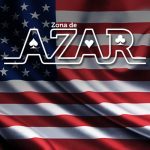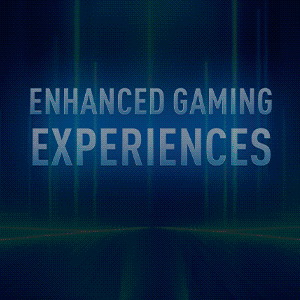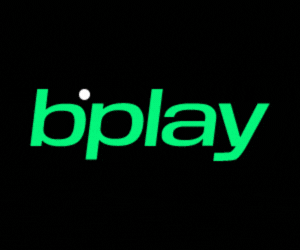Zona de Azar USA – Washington Gambling Chief Sees Black Market Explosion when Sports Betting is Legalized

USA.- July 22nd 2019 www.zonadeazar.com The Washington State Gambling Commission is bracing for sweeping changes as the Legislature heads toward a second year of debate about whether to approve a major expansion of legal sports gambling.
Dave Trujillo, the commission’s executive director, predicted that the black market in illegal sports gambling will increase as the form of wagering becomes more socially acceptable.
“Historically speaking, as activities become tolerated, they become more prevalent. When they become more prevalent, they become more accepted and people will then conduct their own games or activities outside of regulated and taxable structures,” Trujillo told The News Tribune in a recent interview.
Last year, the U.S. Supreme Court struck down a federal law that banned sports gambling in nearly all 50 states.
In the 14 months since the high court’s decision, residents in eight states have joined Nevada in betting legally on sports. Seven states and the District of Columbia have authorized sports betting, but it’s not yet operational.
The Gambling Commission has taken one official action so far. The five-member panel, whose members are appointed by the governor, voted unanimously in January to take the position that the Gambling Commission should be the primary regulatory agency if the Legislature authorizes a major expansion of sports gambling.
Sports wagering is legal in Washington only in a very narrow fashion. Businesses and individuals can charge up to $1 per square on 100-square sports pool boards for a single sports game, like the Super Bowl. The number of people who bet using sports boards is extremely low, state officials say.

Fantasy sports for money, bracket pools such as the NCAA basketball tournament and office sports pools are illegal in Washington. Enforcement on something like the college basketball brackets is driven by complaints, and action typically is taken only if an organizer has ripped participants off by pocketing some of the money, officials say.
The biggest part of the black market in Washington appears to be online gambling on sites controlled by off-shore entities that state regulators have problems reaching, according to Brian Considine, the Gambling Commission’s legal and legislative manager.
“If you want to bet in this state illegally, it might take you a lot of energy and effort, but eventually the way you’re going to do it is online. In fact, even if you find an illegal bookie somewhere, they’re going to probably direct you to an online website that’s offshore because that’s managing their risk,” Considine told commission members at a recent meeting. He added that the federal government likely will need to crack down on those off-shore entities.
Trujillo said he anticipates the pressure for a major expansion of sports gambling in Washington will begin in Vancouver, separated from Portland by the Columbia River.
“Washington residents are going to say to Washington legislators, ‘Hey, this is just miles down the road. Why don’t we do something to keep the play in our state rather than going to contribute to the coffers of Oregon?’” he said.
The Oregon Lottery Commission has hired a firm to provide an online sports betting platform. The plan is to start offer gambling on the Lottery’s mobile application in September as the NFL regular season begins. Washington residents could bet legally only by being in Oregon.
Many states with legal sports betting are using online options, especially mobile phone apps that are restricted by “geo-fencing,” technology enabling bettors to wager only within a geographic area.
“So if someone’s within their state (boundaries), they can place a bet on their mobile phone. But if they’re not, they get kicked off,” he said.
In Washington, HB 1975 — the sole sports gambling bill that a House committee approved this year but which did not advance farther — did not allow online wagers statewide. The bill would have allowed sports gambling only at tribal casinos, including by internet only if the person betting is “physically present on the premises of the gaming facility of the Indian tribe or tribal entity.”
The Washington Horse Racing Commission and trade groups including the Recreational Gaming Association of Washington plan to continue to urge legislators to allow sports gambling beyond tribal land.
The Evergreen Council on Problem Gambling, a nonprofit group based in Olympia, will continue to push for more funds for treatment, outreach and education to combat gambling addiction if the Legislature approves a major expansion of legal sports gambling.
Maureen Greeley, the council’s executive director, cited national research that sports betting ranks only behind video lottery terminals — which Washington does not have — in the prevalence of problem gambling.
Among the big questions the Legislature will have to resolve is whether to allow in-game betting. That when gamblers can wager on a game while it’s happening, with the odds changing after almost every possession or play.
“Part of problem gambling is surrounded by access to gambling and part of it is surrounded by frequency — to the ability to bet more often,” Greeley said.
Trujillo said he anticipates a flurry of activity next year in legislative committees to flesh out sports gambling bills during the 60-day session but expects action on the House and Senate floors in the 105-day session in 2021. He and his staff are keeping commission members apprised of legislation that other states are adopting.
At two recent Gambling Commission meetings, Sen. Steve Conway peppered staff with questions about the inner workings of legal sports gambling, from whether betting would be allowed on University of Washington and Washington State University games to how regulators would resolve pay-out disputes.
One of Conway’s queries was whether there’s a model sports gambling bill that Washington could consider.
In a recent interview, Trujillo said: “There’s a smorgasboard of sports betting food out there because all states look to act and create the laws and regulatory program that is best for them. So far, there’s no good model policy out there because they’re all tailored uniquely tailored to their state and we would expect our Legislature to do something similar.”
Gambling Commission member Chris Stearns said Washington can learn from the good and the bad as other states implement legal sports gambling.
“It’s pretty remarkable how quickly other states have jumped into sports betting. To me at least, there’s a lot to be learned by seeing what others do, borrowing from the success of others and learning from the mistakes of others. That can take some time,” he said.
INPUT SOUGHT
The Gambling Commission is seeking public input on the future of sports gambling in Washington. Commission members are expected to discuss the topic at their Aug. 8, Sept. 12, Oct. 10, and Nov. 14 meetings at the Hampton Inn & Suites, 4301 Martin Way E. in Olympia.
Meeting times, agendas and packets are available at https://www.wsgc.wa.gov/commission/public-meetings.
Members of the public who are unable to attend a meeting can submit comments using the commission’s online form at https://www.wsgc.wa.gov/news/request-public-comment.
Edited by: @MaiaDigital (Twitter) www.zonadeazar.com










































